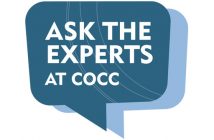You need it, but are you patient enough to reap the benefits? Search Engine Optimization has become one of the most crucial marketing tools for driving traffic to your business. However, expectations of how and when your site will show up on page one of search engines are often in realistic. Some businesses that start the SEO process give up because they do not understand what it takes to get results.
How long does it take? According to a February 2, 2010 blog on www.fivesparrows.com, “That’s a difficult question with a complicated answer. Seeing results in the search engines depends on many factors, and each web site’s circumstances are unique.” The blog goes on to give a few points to consider in determining how long you might expect SEO to take:
• How many inbound links does your site have? Google definitely cares about not only how many inbound links your site has, but also the quality of the sites those links come from. For instance, inbound links from an authority site with a topic related to yours will benefit you way more than reciprocal links or links from a site that is unrelated (or worse—a link farm). And paid links are a big no-no altogether.
• How old is your web site? Believe it or not, the age of your web site matters to the search engines. New sites come and go all the time, and the search engines want to make sure that your site is established and stable before they rank it in their results. However, a new site with lots of inbound links will quickly get the attention of the search engines, since they assume that if others think your site is worth linking to, then it must be valuable.
• How “fresh” is your content? A static site that never gets updated is not all that interesting to the search engines, no matter how great the content may be. The search engines want to provide their users with sites that are well-maintained and contain up-to-date information. Since there are so many sites to choose from, the search engines will choose the ones that have the latest information.
• How many inbound links do your competitors have? If the top-ranking web sites have 10,000 inbound links and your site has only a few, you have some work to do. You may not need to have exactly the same number of inbound links as the top sites, but you definitely need to be close. And of course, having more is even better.
• How competitive is the keyword you are targeting? This is a tough one, because the more competitive your keyword is, the more sites will be trying to rank for that same keyword. If your keywords are highly competitive, you may want to do some research and optimize for similar but less-competitive variations, at least to start with. Then as you build additional inbound links and add fresh content to your site, you can add back the competitive keywords.
• How visible is your business online—overall? Do you have an existing social media marketing strategy in place? Does your company have a blog? Send e-newsletters? Submit online press releases?
Syndicate articles? All of these things can contribute to your online visibility, and will help you naturally build inbound links as people discover your content and start linking to it. Plus, the more places your business shows up online, the more opportunities the search engines have to find you.
“Getting good rankings in the search engines doesn’t stop after the optimization work is completed,” according to the blog. “That’s really just the beginning. You must consistently add fresh content to your site and build as many quality inbound links as possible so the search engines will notice your site. There are no specific time frames to determine how long it will take to see results; however, the more you can do to show the search engines that your site is a valuable resource, the faster they will share that with their users.”
Kelly Walker at Incyte Marketing, 541- 419-9976. Kelly@incytemarketing.com, www.incytemarketing.com




